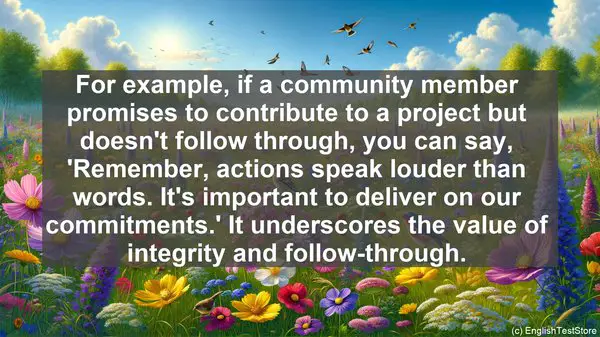Introduction: The Power of Idioms
As a Peace Corps worker, you’re not just a volunteer but also a cultural ambassador. And one of the best ways to bridge the gap between languages and cultures is through idioms. Idioms are like little windows into a language’s soul, revealing its history, culture, and unique expressions. Today, I’ll be sharing with you the top 10 English idioms that every Peace Corps worker should have in their linguistic arsenal. Let’s get started!
1. The Ball is in Your Court
This idiom is often used to indicate that it’s someone else’s turn to take action or make a decision. For example, if you’re discussing a project with a local community leader, and you’ve presented your ideas, you can say, ‘Now, the ball is in your court. Let me know what you think.’ It conveys that you’ve done your part and are waiting for their response or action.
2. Break the Ice
When you’re meeting someone for the first time or entering a new social setting, it can be a bit awkward. That’s where this idiom comes in. ‘Breaking the ice’ means to initiate a conversation or interaction in order to make everyone feel more comfortable. For example, if you’re attending a community gathering, you can say, ‘Let’s break the ice by introducing ourselves and sharing a fun fact.’ It’s a great way to create a friendly and inclusive atmosphere.
3. On the Same Page
In any collaborative effort, it’s important for everyone to be ‘on the same page.’ This idiom means to have a shared understanding or agreement about something. For instance, if you’re planning an event with a group of volunteers, you can say, ‘Before we proceed, let’s make sure we’re all on the same page regarding the schedule and tasks.’ It ensures that everyone is aligned and working towards a common goal.
4. A Picture is Worth a Thousand Words
This idiom emphasizes the power of visuals. It suggests that a single image can convey a complex message or idea more effectively than a lengthy explanation. For instance, if you’re teaching English to a group of students and want to explain a difficult word, you can say, ‘Sometimes, a picture is worth a thousand words. Look at this image, and tell me what you think it means.’ It encourages critical thinking and visual literacy.
5. The Elephant in the Room
We’ve all been in situations where there’s an obvious issue or topic that everyone is aware of but no one wants to address. That’s when this idiom comes into play. ‘The elephant in the room’ refers to a problem or sensitive subject that is being deliberately ignored. For example, if there’s a conflict within the community that needs to be resolved, you can say, ‘Let’s not ignore the elephant in the room any longer. We need to have an open and honest discussion.’ It brings attention to the issue and encourages dialogue.
6. In the Same Boat
When you’re facing a challenge or going through a similar experience as someone else, you can say, ‘We’re in the same boat.’ It means that you’re in a similar situation and can empathize with each other. For instance, if you’re talking to another volunteer who is also struggling with language barriers, you can say, ‘Don’t worry, we’re in the same boat. Let’s practice together.’ It creates a sense of camaraderie and support.
7. Barking up the Wrong Tree
If someone is ‘barking up the wrong tree,’ it means they’re pursuing a mistaken or misguided course of action. For example, if a community member is blaming a certain group for a problem without any evidence, you can say, ‘I think you’re barking up the wrong tree. The issue might have a different cause.’ It suggests that they should reconsider their approach or perspective.
8. Hit the Nail on the Head
When someone ‘hits the nail on the head,’ it means they’ve accurately identified or described a problem or situation. For instance, if a local community leader is explaining the challenges they’re facing, you can say, ‘You’ve hit the nail on the head. These are indeed the key issues we need to address.’ It shows that you understand and appreciate their insights.
9. Actions Speak Louder Than Words
This idiom emphasizes the importance of actions over mere words. It suggests that what someone does is more significant and revealing than what they say. For example, if a community member promises to contribute to a project but doesn’t follow through, you can say, ‘Remember, actions speak louder than words. It’s important to deliver on our commitments.’ It underscores the value of integrity and follow-through.
10. Rome Wasn’t Built in a Day
This idiom is a reminder that great things take time and effort. It’s often used to encourage patience and persistence. For instance, if a project is progressing slower than expected, you can say, ‘Remember, Rome wasn’t built in a day. We’re making steady progress.’ It helps manage expectations and maintain motivation.

Conclusion: Language as a Bridge
Language is not just a means of communication; it’s a bridge that connects people and cultures. By learning and using idioms, you’re not only enriching your language skills but also deepening your understanding of the local community. So, embrace these idioms, explore their origins and meanings, and let them be your linguistic companions on this incredible Peace Corps journey. Thank you for watching, and until next time, happy learning!

